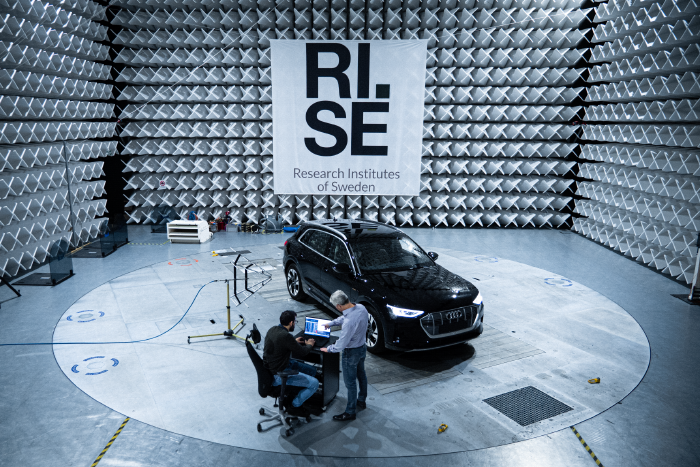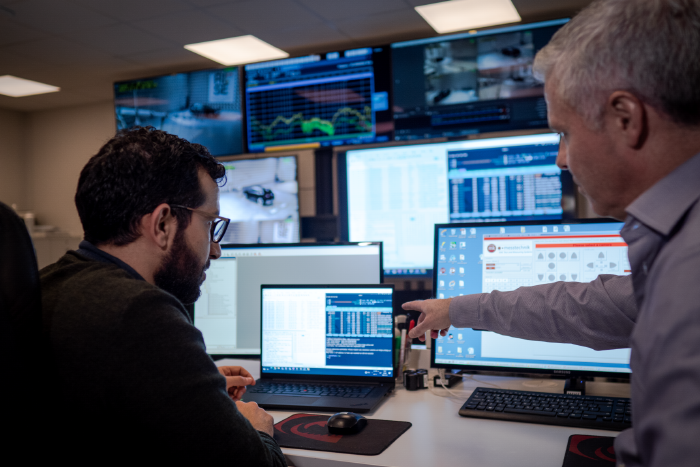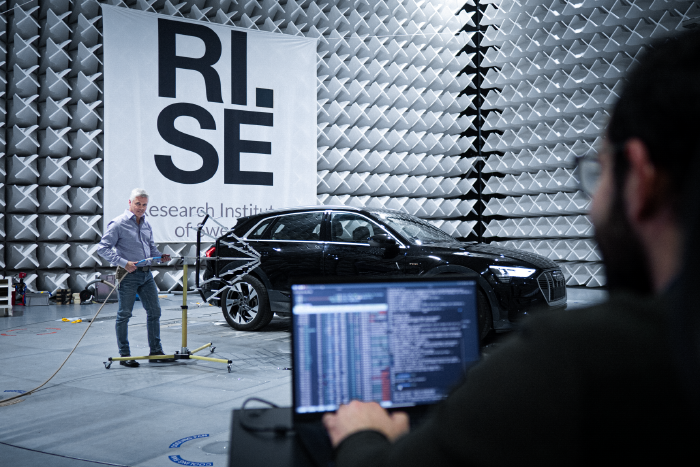State owned Research Institutes of Sweden, RISE, is launching Europe’s most advanced cyber security initiative dedicated to vehicle testing. RISE Cyber Test Lab for Automotive enable the automotive industry to test vehicles by using the latest in cyber technology and the world’s most rigorous testing methods.

The Cyber Test Lab will offer a range of unprecedented insights, methods and test beds in collaboration with world leading telecom experts and ethical hackers. The partnership is unique in tackling what has become a key concern for manufacturers competing to build connected vehicles.

“We are deploying a world leading hub with several test beds and scientists together with carefully selected partners. We will address the burgeoning cyber threatening around connected vehicles today and in the future. A single automotive manufacturer cannot work alone in finding ways to combat cyber-attacks. This must be done with the broadest range of expertise to ensure that the whole industry benefits from centralized research.” Said Pia Sandvik, CEO of RISE
Cyber Test Lab launches at an unprecedented time for the industry. Key data:
- Vehicles with embedded connectivity will account for about 80% of connected vehicle sales by 2026 (Businesswire, January 2022),
- By 2030, about 95 per cent of new vehicles sold globally will be connected, up from around 50 per cent today according to McKinsey & Company.
- The automotive industry is projected to lose a staggering $505 billion by 2024 to cyber-attacks. Hackers are becoming more sophisticated with 84.5% of 2021 attacks carried out remotely. (Upstream security, January 2022).
RISE started its planning for a dedicated automotive cyber security test lab in 2021, following several high-profile cyber-attacks on vehicles around the world. The Cyber Test Lab will test vulnerabilities across key areas – virtual testing/digital twins, embedded software in vehicle units (ECU), vehicle cloud-based software.
Cyber Test Lab provides test services including simulation/virtualization, sub system testing, semi-virtual and full vehicle testing in controlled environments. It provides a complete chain of testing capabilities by interconnecting our existing Cyber Range with the automotive test beds AWITAR and Asta Zero. This allows manufacturers to stress test new technologies and products through the whole R&D process.
“It might sound controversial, but we firmly believe working with ethical hackers is critical in testing vehicles to their limits. The ethical hackers are selected partners from our existing Cyber Range in Stockholm. This launch of the Cyber Test Lab is especially important at a time when cyber-attacks and cyber threats against infrastructure and connected technology has become a fast-growing problem around the world.” said Tomas Bodeklint, Head of operations at Cyber Test Lab.
The focus on the automotive industry was an obvious starting point in a country hosting some of the world’s most well-known global automotive companies such as Scania, Volvo Trucks, Volvo Cars and Koenigsegg. Sweden is also home to innovative new start-ups like Einride, Polestar and Volta Trucks and companies supplying advanced technology for connected and self-driving vehicles.
The European Union cyber security organization, ENISA, is already preparing EU standards and certifications in cyber security. With the launch of the Cyber Test Lab, RISE is set to become the leading European provider of test methods and research that underpins this certification process.
RISE is already hosting world leading proving grounds for road systems and research for self-driving vehicles at AstaZero and AWITAR, outside Gothenburg. Both these proving grounds are incorporated into Cyber Test Lab.
The RISE Cyber Test Lab will start advanced testing by beginning of 2023. In preparation, pilot projects are already in full swing, simulating cyber-attacks on vehicles and electric vehicles charging infrastructure.

COMMENTS